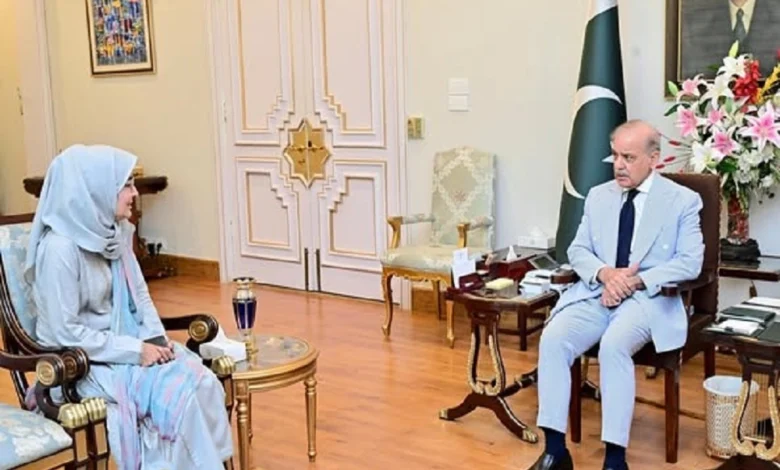Meeting with Dr. Aafia’s sister, PM Shehbaz promises all available legal and diplomatic assistance.

According to the prime minister, the government is not at all careless in the issue of Dr. Aafia Siddiqui.
According to a press release from the PM Office, the government has already offered diplomatic and legal support in the case of Dr. Aafia Siddiqui on PM Shehbaz Sharif’s orders.
on order to guarantee further advancement on the matter, the prime minister also established a committee led by Federal Minister for Law and Justice Azam Nazeer Tarar in addition to writing a letter to then-U.S. President Joe Biden about it.
According to the statement, the committee will continue to communicate with Dr. Fouzia Siddiqui and will endeavor to offer the required assistance in this respect.
The federal cabinet was previously sent with a show-cause order for contempt of court by the Islamabad High Court (IHC) in the matter of Dr. Aafia Siddiqui’s release and repatriation.
Justice Sardar Ijaz Ishaq Khan presided over the hearing, which was based on a plea submitted by Dr. Fauzia Siddiqui, the sister of Dr. Aafia Siddiqui, who is incarcerated in the United States at the moment.
See Also: Pakistan denies plan to swap Shakil Afridi for Dr. Aafia
Despite being ordered to do so in June, Justice Ijaz Ishaq voiced his extreme disapproval of the federal government’s reluctance to provide a report outlining its reasons for declining to support Dr. Aafia’s case before a U.S. court.
“I will call a meeting of the entire cabinet if the report from the federal government is not presented. The court asked, “Why shouldn’t contempt proceedings be started against the Prime Minister and every other member of the cabinet?”
The government was given time to submit the report by the court, which also threatened severe legal repercussions for any additional delays.
Imran Shafiq, the attorney for Dr. Fauzia Siddiqui, and Additional Attorney General Rashid Hafeez, who represented the federal government, attended the hearing.
The judge made it clear that he would not permit administrative powers to impede judicial authority and that he was committed to administering justice, even on a holiday. “In the past, decisions in certain instances have been influenced by the judges’ roster. Justice Ijaz proclaimed, “I will not allow justice to be defeated.” He promised to preserve the high court’s honor by using his judicial authority.
Context
Born in Karachi in 1972, Aafia Siddiqui came from a well-educated household. She continued her education in the US, graduating from Brandeis University in 2001 with a PhD in neuroscience.
After the 9/11 attacks, she was suspected of having ties to “extremist organizations,” which significantly changed her life. She was well-known for her religious dedication and intellectual prowess.
She was captured under dubious circumstances in Ghazni, Afghanistan, in 2008. At the heart of the charges against her is an alleged attempt to shoot American soldiers during an interrogation session.
Despite being in custody, the Pakistani doctor allegedly managed to seize a firearm and fired, although she did not injure anyone, according to U.S. authorities. The American staff retaliated by shooting her in the abdomen, seriously injuring her.